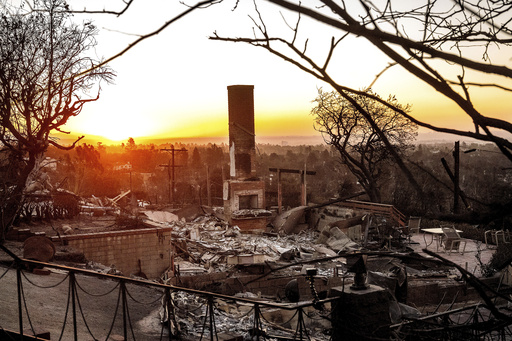
The aftermath of catastrophic events such as the devastating wildfires in California brings about initial confusion and fear. Upon receiving evacuation orders, individuals must quickly decide what belongings to take with them and are left pondering the fate of their homes. As time passes, many face the deep sorrow of losing their homes, symbolizing not just a physical space but a repository of memories and a sense of security. Rebuilding lives after such upheavals poses significant stress and financial hurdles.
This emotional toll is significant, demanding attention beyond immediate needs following disasters like wildfires and hurricanes. Experts emphasize the importance of addressing mental health alongside physical requirements in the wake of such tragedies. David Kessler, a notable author on grief, highlights the lingering nature of grief, noting, “Just because the fire trucks pull away doesn’t mean the disaster is over.” This phrase encapsulates the reality that the emotional struggle continues long after the visible signs of disaster have faded.
Support from friends, family, and communities is crucial during these difficult times. Kat Robinson-Malone recalls the poignant farewell to her family home in Tampa, which suffered damage from Hurricane Helene. Friends and family were invited to leave their marks on the walls, knowing they would soon be demolished to make way for a more resilient structure. The emotional complexity of losing one’s home encompasses feelings of frustration, anger, sadness, and even gratitude for the community support received. She found talking with a therapist to be beneficial, asserting that expressing one’s thoughts and feelings is integral to the healing process.
Reassurance becomes vital, especially for children impacted by such disasters. Kessler recounts his own childhood trauma following losing his home in a hurricane, which marked a significant transition in his life. He emphasizes that parents should offer comfort to their children during these turbulent times. Acknowledging children’s fears and validating their emotions plays a key role in their coping, while adults must permit themselves to feel their own emotions as well.
It’s essential to let those affected by disaster dictate how and when they wish to receive support. Mental health consequences can stem from living through collective trauma, including anxiety and depression. Roxane Cohen Silver, a psychological science professor, underscores the value of social support, suggesting that individuals offering help should allow the affected person to lead the conversation about their needs and feelings.
While immediate support may dwindle, ongoing assistance is necessary. Often, people feel well-intentioned phrases can be dismissive. Lauren Mott, a counseling educator, recommends avoiding statements that downplay the individual’s experience, and instead, she encourages offering genuine support, like “I’m sorry you are going through this,” or “How can I help?”
Monitoring personal feelings and behaviors is equally important. Mott encourages those affected to remain vigilant regarding their emotional health, noting signs of distress like heightened anxiety or withdrawal from social circles. Self-care practices are critical, allowing individuals to process their grief without judgment and focusing on basic needs such as nutrition and rest. In situations of intense emotional difficulty, reaching out for professional mental health support is imperative.
The Rev. John Shaver, who lost both his home and his church to the wildfires, reflects the communal impact of such losses. He emphasizes the necessity of listening and being present for one another, recognizing that grief comes in waves. Moreover, he highlights the importance of looking out for those who serve as helpers during disasters, such as firefighters, stressing that support is a shared need during these challenging times. Shaver encourages individuals to take moments of reflection and mindfulness as they navigate their circumstances, affirming that everyone’s experience deserves validation, and there is no blame for the situation at hand.

